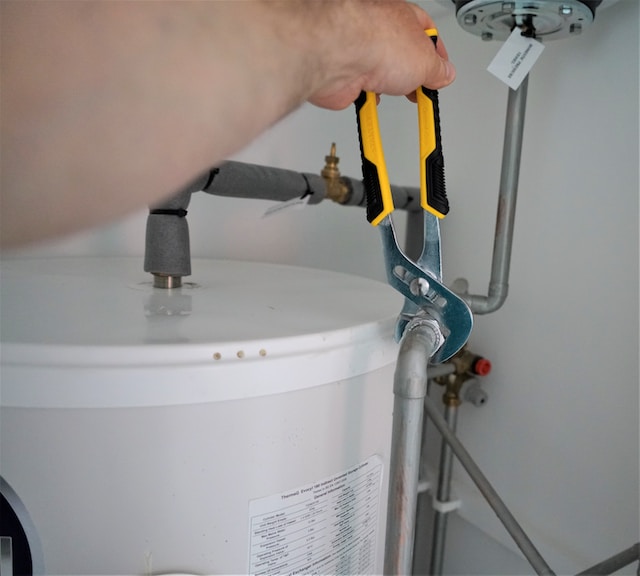Are you facing problems with kitchen pipe leaks? Is it driving you crazy trying to figure out the solution? Worry not, as we have got your back. This comprehensive guide will help guide you through the process of dealing with the issue. From identifying the source of leaking pipes, how to stop and repair them, and preventing future leaks; this post has gathered all kinds of useful information that will help make that leaky pipe in your kitchen a thing of the past! So, read on for invaluable tips on managing this common problem.
Identifying the source of the leak
When it comes to a leak, identifying the source is critical before repairs can begin. The task of identifying the source of the leak can be difficult, but it is necessary to stop the problem from getting worse. Careful observation and attention to detail can be key factors in the process of identifying the source. It’s important to look for any visible signs such as water stains, wet spots, or a sudden increase in water bills. Additionally, it’s useful to check appliances or pipes that are known to commonly cause leaks. By taking a methodical approach to this problem, the source of the leak can be discovered and fixed before it becomes a larger and more damaging issue.
How to turn off water supply and avoid further damage
Water damage can be a headache for any homeowner. Whether it’s from a burst pipe, leaky faucet, or overflowing toilet, it’s important to know how to turn off the water supply to avoid further damage. The first step is locating the main shut-off valve, which is typically located near the water meter. Once you’ve found it, turn the valve clockwise to shut off the water flow. If the damage is localized to a specific area, such as a bathroom or kitchen, you can also turn off the water supply to that fixture by shutting off its individual shut-off valve. Taking these simple steps can help prevent costly water damage and give you peace of mind.
Steps to take when assessing damage
When it comes to assessing damage, it’s important to follow a few key steps to ensure a thorough evaluation. Firstly, prioritize safety – if there are any immediate hazards, address those before anything else. Once it’s safe to do so, take photos and document any damage you come across, being sure to note the date and time. Next, reach out to your insurance company or a need professional plumber to get an estimate on repairs and discuss options moving forward. It can be overwhelming to deal with damage, but by taking these important steps, you’ll be better equipped to handle the situation at hand.
DIY solutions for minor pipe leaks
Dealing with a pipe leak can be a frustrating experience. It may be tempting to call a plumber right away, but sometimes a little DIY effort can solve the problem without the need for a professional. There are a few solutions for minor pipe leaks that you can tackle yourself, depending on what’s causing the problem. For instance, you can try using a pipe clamp or epoxy to fix a small crack or hole in the pipe. Alternatively, you can use a rubber patch or duct tape to seal the leak temporarily until you can get it professionally fixed. DIY solutions may require some effort, but they can save you money and prevent further damage to your plumbing system.
When to call a plumber and what to expect during the repair process
Dealing with a plumbing issue is never fun, but it’s important to know when to call in the professionals. In general, if you have a leak that can’t be stopped by turning off the water supply, a clogged drain that can’t be cleared with a plunger, or a persistent foul odor coming from your pipes, it’s time to call a plumber. Once you’ve made the call, you can expect the plumber to arrive promptly and assess the issue. They’ll likely use tools such as cameras to inspect your pipes and identify the root cause of the problem. From there, they’ll provide you with a diagnosis and outline the repair process. While it can be stressful to deal with a plumbing issue, having a qualified plumber on your side can make all the difference.
Tips for preventing future pipe leaks in the kitchen
Dealing with a water leak in your kitchen can be a major hassle and a significant expense. No one wants to deal with the headache of water damage, ruined flooring, or expensive repairs. Fortunately, there are several precautions you can take to prevent future pipe leaks in your kitchen. First, it’s crucial to regularly inspect your pipes for any signs of wear and tear, such as rust or bulging. Additionally, avoid putting hard-to-grind items, such as eggshells or coffee grounds, down your drain. Finally, never pour grease or oil down your sink, as they can solidify and clog your pipes. By taking these simple steps, you can rest assured that your kitchen stays leak-free.
















